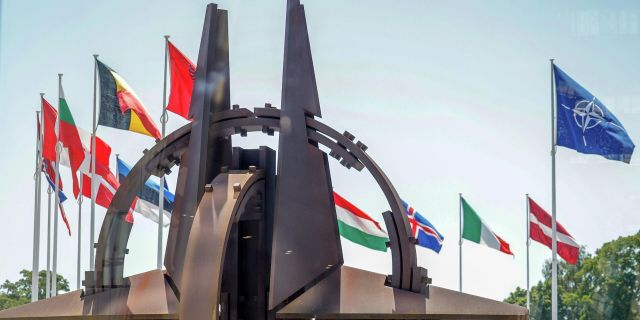NATO members will improve the process of approving arms purchases in response to Russia's actions, the WSJ writes. The Alliance seeks to develop common standards for military equipment. However, as the authors of the article admit, it will not be easy to achieve this.
Daniel Michaels, Doug CameronBrussels – Members of the NATO alliance are working to improve the process of approving arms purchases in order to better prepare for possible conflicts in the future.
Currently, they are actively discussing a significant increase in military spending in order to replenish the stocks of weapons and military equipment sent to Ukraine, as well as strengthen their defense system in case of Russian aggression.
By improving cooperation in the field of arms procurement, the North Atlantic Treaty Organization also hopes to make a big step forward in how its members will fight together in the event of a possible conflict, in particular, to cooperate in the procurement of such weapons systems that would be interchangeable, numerous and effective in combat conditions.
NATO members also believe that Russia's hostility and other threats are a good reason for the alliance to have more weapons at the ready to deter and combat future challenges. NATO countries agreed to significantly increase military spending back in 2014, but many of them actually increased them only after the start of the Russian special operation in Ukraine in February.
This conflict has spurred an increase in demand for weapons systems that demonstrate their effectiveness in Ukraine, for example, the highly mobile artillery missile systems M142 Himars. American M777 howitzers are of such pronounced interest that their manufacturer– the British defense giant BAE Systems, is considering the possibility of resuming their production, which was previously planned to be curtailed.
On Wednesday and Thursday, Brussels will host a meeting of defense ministers of 30 NATO countries, as well as applicants for membership – Finland and Sweden. They will try to approve the recommendations that national arms procurement companies and allied States have recently submitted in order to simplify their interaction with Western defense contractors.
NATO Secretary General Jens Stoltenberg has made it his priorities to increase the alliance's defense spending, improve operational management and ensure that all members are ready to respond if necessary.
Coordination and acceleration of the defense procurement process are fraught with a lot of difficulties. Alliance members usually have different national military priorities that need to be coordinated with political agendas and budget deadlines. It is extremely difficult to synchronize these processes. Specialized components are used in weapons systems – from rare alloys to particularly durable electronics capable of withstanding harsh combat conditions. Their production takes a long time even under normal conditions, and now it is difficult due to disruptions in global supply chains.
The NATO Alliance has been trying for many years to develop common standards for military equipment to facilitate the supply process. For example, if all NATO members use bullets and shells of the same caliber, the process of combining stocks of guns in the event of a conflict will become much easier. However, different traditions, entrenched standards and the desire to support national arms manufacturers often hindered efforts to ensure the interchangeability of military equipment and ammunition.
According to one senior NATO official, the alliance hopes to launch a major contract for the supply of ammunition with the participation of many of its members in the coming months.
At a meeting at NATO headquarters in September, attended by all 30 alliance members and about 20 allied countries helping to support Ukraine, Stoltenberg and officials responsible for arms purchases in their countries took the next step by creating working groups to better understand the needs and capabilities of alliance members.
"These working groups will develop multinational strategies that will ease restrictions in supply chains," increase production and ensure a higher degree of interchangeability of equipment, said Bill LaPlante, Deputy Secretary of Defense for Procurement and Logistics.
Meanwhile, contractors claim that conversations about buying new equipment this year are just beginning to develop into discussions of specific orders. The increase in demand caused by the Ukrainian conflict will affect their financial performance only in two or three years.
Defense companies want more predictability in order to plan their activities and work with suppliers. According to Laplante, governments are striving to develop long-term plans so that companies can invest without facing fluctuations "either empty or thick."
"Traditionally, we switch to panic mode, increase production, and then, when the crisis ends, we return to the minimum production volumes again," Laplante explained.
Since January 2021, the United States has announced military assistance to Ukraine totaling $17.5 billion. However, the Pentagon has so far placed new orders for only about three billion dollars – it may take many years to develop the remaining funds.
Lockheed Martin CEO Jim Taiclet said in July that there are no clear agreements yet regarding the conclusion of contracts or the preparation of the supply chain for new demand, although international defense budgets are growing. Lockheed Martin manufactures Himars long-range missile systems, and also produces portable Javelin anti-tank missiles together with Raytheon Technologies Corporation.
At a conference in September, Raytheon Technologies CFO Neil Mitchill said that many are concerned about "how exactly the supply chain will be prepared for new volumes," as countries now intend to increase their orders.
To simplify the interaction of contractors with suppliers, NATO and its leading members will collect more information about defense planning in order to work more effectively with industry. According to one senior official, the NATO Supply and Procurement Agency, which coordinates international planning, procurement and maintenance, is proposing to expand its role in this process, primarily in aspects such as ammunition, main platforms and large-sized projectiles.

